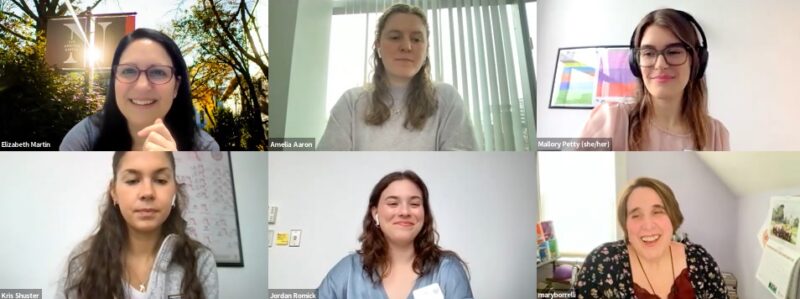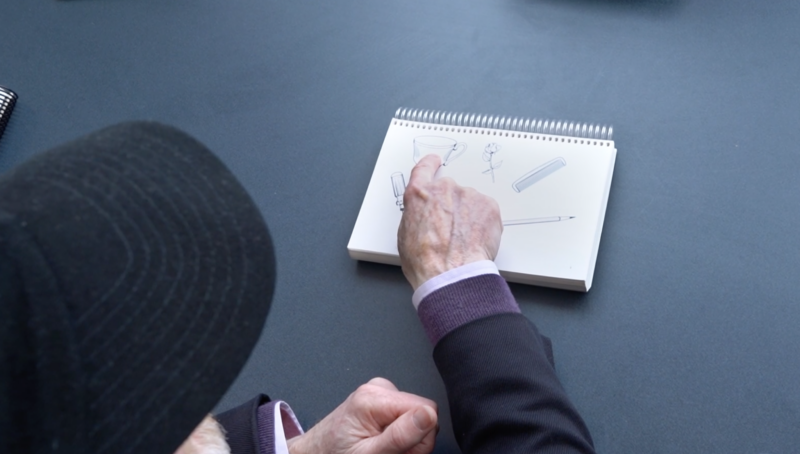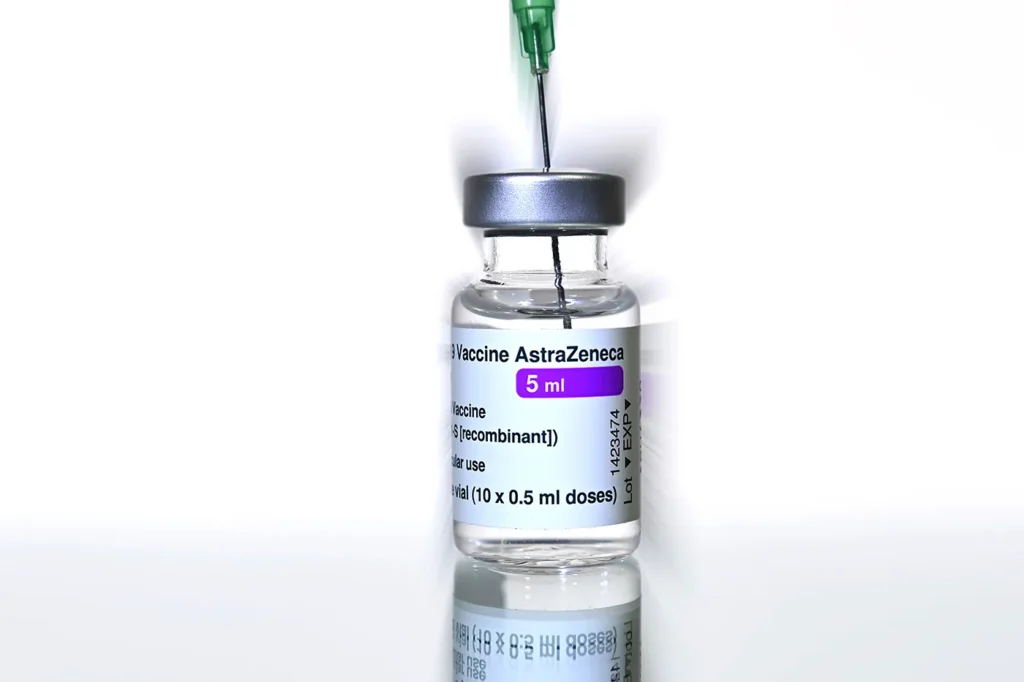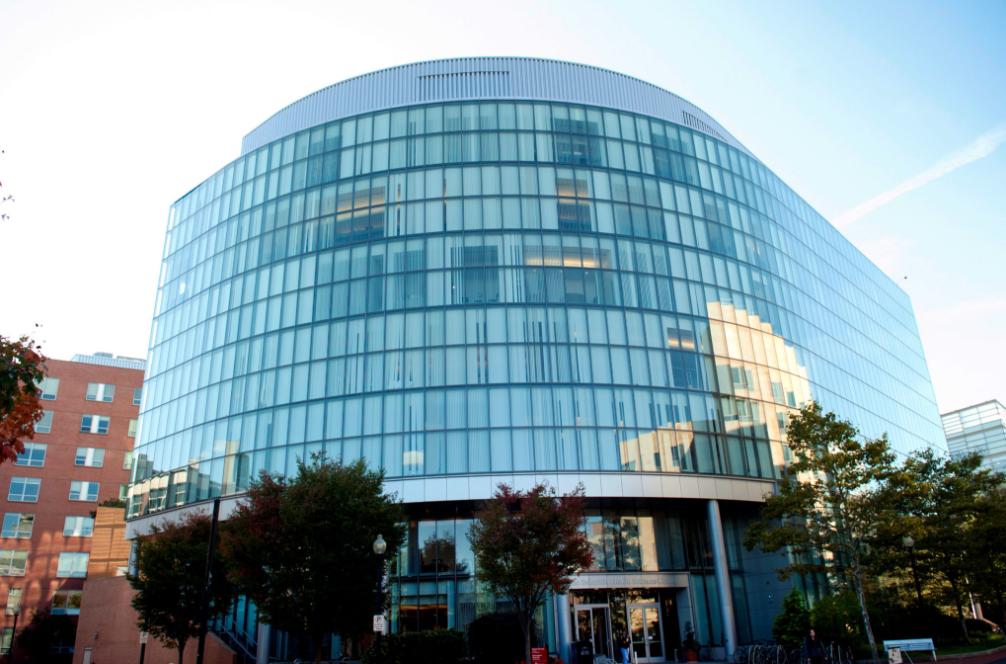June is Aphasia Awareness Month. While many may not be familiar with the disorder, the Aphasia Workshop through Northeastern University’s Speech-Language and Hearing Center has been working to educate students and give them hands-on experience helping those with aphasia.
Aphasia is a language disorder that impacts the ability to communicate, whether it be verbal expression, comprehension, reading, and/or writing. Workshop volunteer Steven Parnell explains, “You can see everything in your brain. You want to be able to say exactly what you want to do, and the thing that is a little fuzzy for me with aphasia is I can see everything in the back of my brain. I can see every word. But it’s like, ‘Steve, I’m not going to let you say that particular word.’”
Through the workshop, a volunteer meets with a group of Speech-Language Pathology graduate students at Northeastern’s Bouvé College of Health Sciences. The students get the opportunity to learn more about aphasia, administer aphasia tests, and hear about the difficulties those with aphasia face and how clinicians can better interact with them.
“Until you sit down with someone who has had a stroke or has aphasia, you’re not going to fully understand it. This was an amazing experience to hear what it’s like to have aphasia, to see it, and then to see the emotional side of how it affects someone and their life,” said SLP student Sabrina Bender.
Elizabeth Martin, MS, CCC-SLP, an Assistant Clinical Professor at the Speech-Language and Hearing Center, created the Aphasia Workshop after becoming familiar with the local aphasia community through her previous job. At Northeastern, she wanted to develop more adult programming in the SLHC and worked with undergraduate and graduate program director Sarah Young-Hong, MA, CCC-SLP to create the clinical simulation lab where volunteers could come and share their wisdom to help teach students. Three years later, over 120 graduate students have learned through the workshop from volunteers who say they love being involved.
Mary Borrelli suffered a stroke in 2010. Since then, she’s been working on her recovery while also participating in research and Martin’s Aphasia Workshop. For Mary, she likes sharing her story to show people there is life after a stroke. She says if you get aphasia, it’s not the end of your world – it becomes a new world. It’s taken her 12 years to get to where she is, which she says is mild compared to where she was, and credits her improvement to “practice, practice, practice.” She says Martin’s workshop is a great way to offer graduating students care tips that she would have liked to have known in the beginning of her recovery when she was still learning about the disorder herself.

Martin says there are many things she loves about the workshop; that it offers a low-stakes environment where students can gradually get comfortable with a client, and that it gives volunteers a space to share tips and explain what will be important in the lives of future healthcare educators. She starts each workshop by asking the volunteer what they may want the group to know about aphasia or having aphasia. After three years, she’s always learning.
The volunteers say they’re thankful for the growth, connection, and the platform to educate about aphasia.
“I would say that when I first came here it was truly a struggle and I would say maybe 10, 15% of what I was doing. Now, I would say I’m close to 90% of where I should be. It’s a work in progress,” said Parnell.
To learn more about the Aphasia Workshop at Northeastern’s Speech-Language and Hearing Center, click here.




